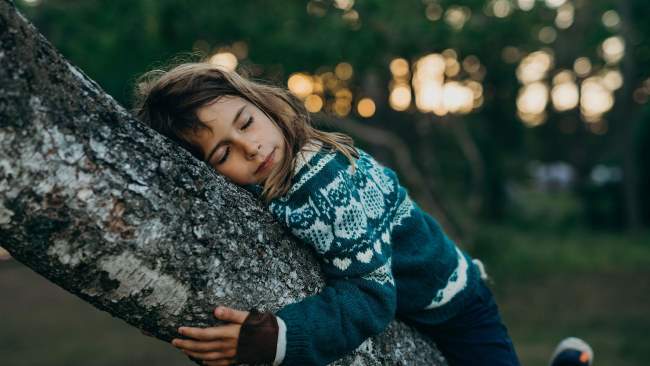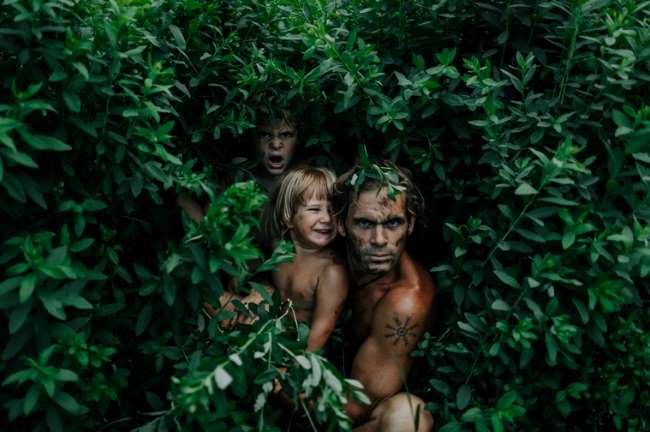A New Kind of Wilderness
12AThe great outdoors. An escape from phone chargers and social media, from 24 hour superstores and Just Eat deliveries. And yet somehow there are still those drawn to it.
It’s that lure for fresh air and green spaces that’s the focus of this Norwegian documentary, that follows a family fully embracing the off grid lifestyle.

Oh go on, hug me back, just once!
Norwegian Maria Gros Vatne and her English partner Nik Payne, made the decision to bring their four children up in rural Norway, living on a sustainable farm.
Maria is the main bread winner of the family, as photographer, with Nik focusing on working their farm.
It’s an idyllic life that their four children Ronja, Freja, Falcon and Wolf, all adore, completely content with their rustic surroundings, spending all of their time there being schooled at home.
Tragedy strikes however when Maria dies, with Nik unable to maintain the payments on their farm, and facing the prospect of doing everything they had fought hard to avoid, and having to move to a city.
It’s a big decision, with the future of his children in mind. But can they really turn their backs on their ideals, and if so, at what cost?

Now you see us...
This is Norwegian Silje Evensmo Jacobsen’s second feature, and it’s slightly misleading. The title suggests a family embracing the great outdoors, but in truth it’s a film about a family coping with loss and how to move on.
Maria’s death occurs within the first ten minutes, leaving Nik with three children, with the fourth Ronja moving in with her father who had a relationship with Maria previously. This proves to be yet another fracture within the family, with the three remaining children losing a mother and a sister at the same time.
Although Nik doesn’t talk very much, which is disappointing with very little verbal contribution from him, it’s clear that he is suffering from the loss of his wife. He finds himself facing a number of choices, some of which are forced upon him like moving his family, as well as the opportunity to return to his native England, where he would have the support of family to help him out. However, he promised Maria that he would keep their family in Norway for as long as possible, and he’s keen to keep his word to her.
We also aren’t privy to the situation regarding Ronja – did she ask to move in with her biological father, or was it forced upon her? Certainly there is little warmth seen between Nik and herself, which only adds to the curious nature of their relationship.
And although Nik is disappointed that his children will now have to go to school, he forgets how resilient young children are, with the transition actually being more difficult for him than them.
The one thing that is always present however is the hole left by Maria. It’s clear she made an impact on all their lives, and her memory resonates throughout the film.
So it’s more a film about dealing with loss than simply not living off grid anymore, and it’s this theme that gives it its raw, emotional power.
The fact that the family is completely adorable, mainly due to that wild streak in them all that gives them that Grizzly Adams vibe, is the main draw for this documentary, and makes up for its shortfalls in other areas.
And it’s their emotional journey as a family that really hits home.
